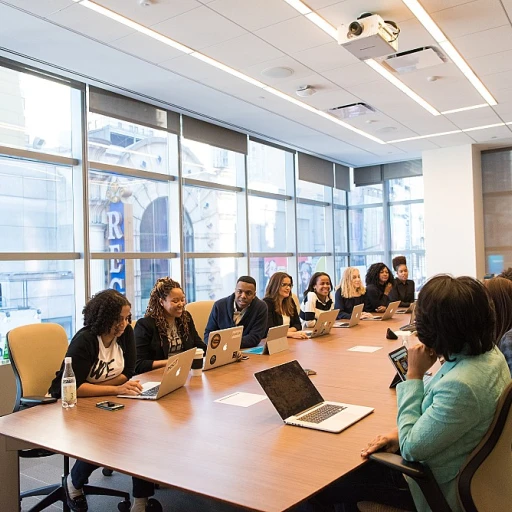Talent Development: Fostering Growth and Innovation in Your Team
Empowering Leadership: The Key to Nurturing Talent
Empowering leadership is crucial in talent management. As general managers, embracing this style involves creating an environment where employees feel valued and trusted to take initiatives. According to a Gallup study, empowered teams exhibit higher productivity, engagement, and innovation. This leadership approach also sets the stage for open communication, where team members can share ideas without fear, fostering collective intelligence and unlocking potential in your team.
Cultivating a Learning Culture: Continuous Improvement as a Norm
Building a continuous learning culture is a strategic move in today's fast-paced business landscape. Implementing regular training sessions and encouraging professional development not only enhances skills but also keeps your team ahead of the curve. Statistics show that organizations with a strong learning culture have 37% higher productivity, and are 92% more likely to develop novel products and processes. Such a culture also optimizes team dynamics by aligning everyone towards common goals of growth and excellence.
Innovative Reward Systems: Aligning Incentives with Company Goals
Introducing innovative reward systems can significantly boost morale and productivity. For instance, offering stock options, profit sharing, or personalized rewards taps into the intrinsic motivation of employees. This strategy has been proven to increase loyalty and drive performance, as employees see a direct correlation between their efforts and the success of the business. In fact, companies with aligned incentive plans report a 27% higher annual increase in shareholder returns.
Optimizing Team Dynamics: The General Manager's Guide to Synergistic Success
Enhancing Collaborative Synergy
For any general manager looking to drive success in today's dynamic business environment, understanding and optimizing team dynamics is crucial. Teams that work in harmony not only increase productivity but also foster a culture of continuous improvement and innovation. Forging a team that resonates with collaborative synergy involves aligning individual talents and personalities to work towards a common goal effectively. Effective communication, mutual respect, and a shared vision are the bedrock of a synergistic team.
The Psychology of Team Building
Constructing a team is akin to assembling a puzzle where each piece is crucial to the overall picture. A general manager should be adept at recognizing the unique strengths and weaknesses of each team member. This recognition allows for strategic task allocation that maximizes strengths and addresses weaknesses among the team. Understanding the psychology behind team dynamics equips a general manager with the ability to create an environment in which employees feel valued and understood, leading to enhanced productivity and innovation.
Strategic Conflict Resolution
Conflict is an inevitable aspect of any team activity, but when managed properly, it can become a driving force for innovation instead of an obstacle. A general manager must develop the skills to navigate and resolve conflicts in a way that encourages open dialogue and collaborative problem-solving. By fostering an environment where constructive conflict is viewed as an opportunity for growth, the general manager sets the stage for breakthrough thinking and unity.
Cultivating an Agile Workforce
In the relentless pursuit of organizational goals, a general manager must prioritize the cultivation of an agile workforce that can adapt to changing circumstances with ease. This agility is fueled by a diverse set of skills and perspectives within the team, enabling quick pivoting and innovative solutions when faced with new challenges. Emphasizing agility in team dynamics involves providing ongoing training and embracing a culture of lifelong learning.
A synergistic team is a cornerstone of a thriving organization. As such, the role of the general manager is to continuously seek ways to enhance team dynamics, invest in the psychological well-being of the team, preempt conflict with sound resolution strategies, and ensure the team's agility in an ever-evolving business landscape. For insights into proactively managing these aspects of team dynamics and to explore the inexorable link between talent and innovation, visit our comprehensive guide on Harnessing Talent Management Trends: The Future-Ready Strategy for General Managers.





